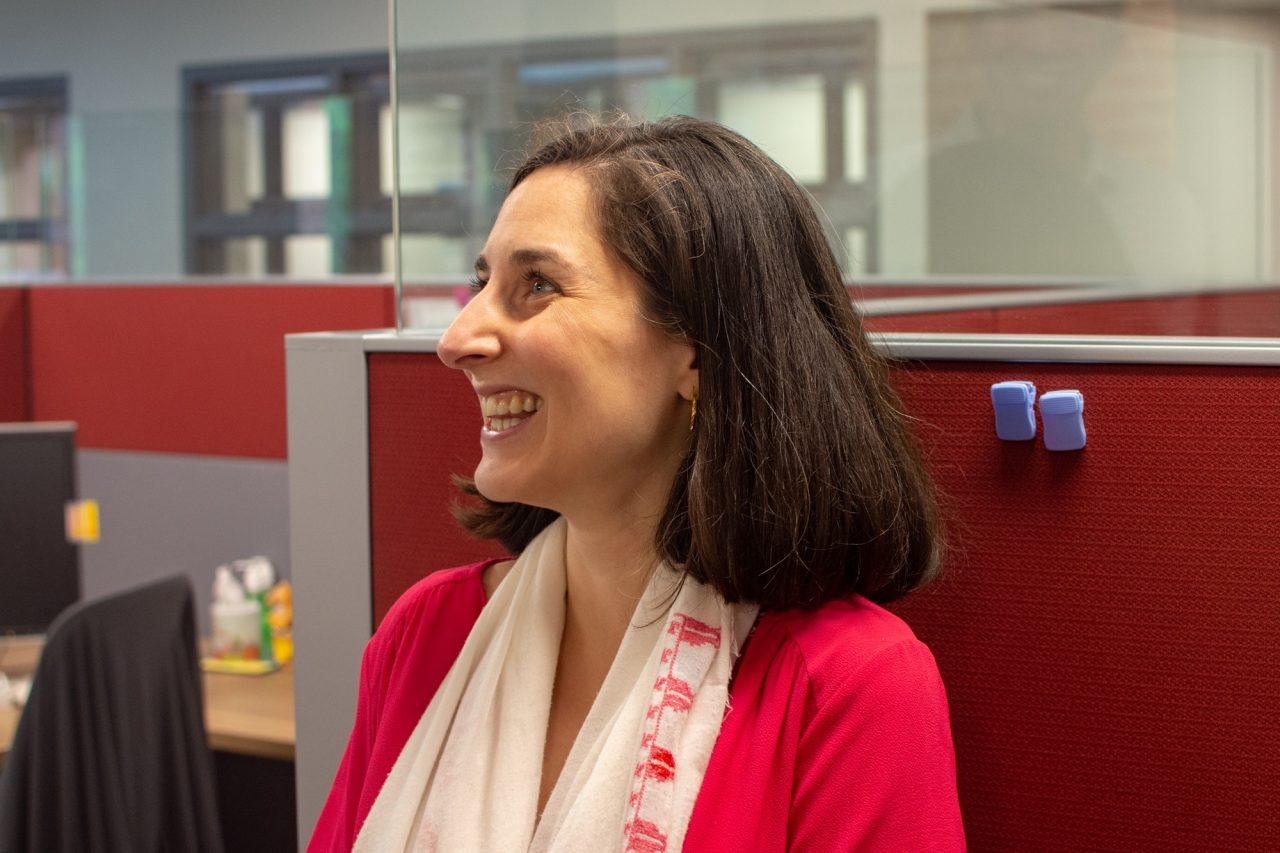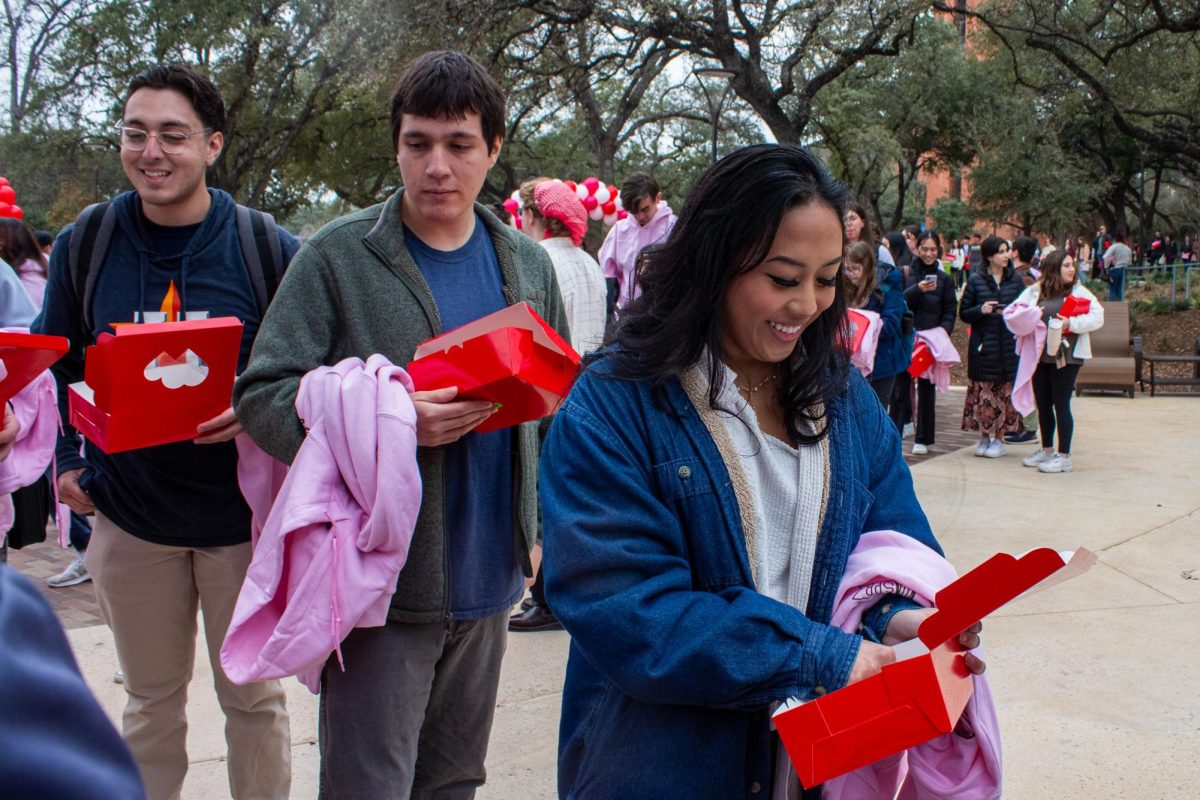photo by Genevieve Humphreys
Erin Hood, assistant director of the Center for Experiential Learning and Success (CELCS), is leaving her position and teaching next year in a new field of study — the Climate Changed First-Year Experience (FYE).
Hood, a Trinity alumna who graduated in 2003 with degrees in drama and psychology, has worked in CELCS for four years, since the center’s creation in 2015.
“After graduating from Trinity, I went off and did improv and sketch comedy in Chicago for a bit and then earned my PhD in Theatre Arts at the University of Wisconsin-Madison,” Hood said. “I came back to San Antonio for family reasons, and shortly after I came back, I was able to start working at Trinity. It’s one of those things that was a twist that I never could have planned for, but I’m so grateful that it was able to happen.”
While Hood is leaving her current position to focus more on teaching and her family, she is grateful for the opportunities she has had at CELCS.
“This role has been a really amazing experience. My previous work was in teaching and research, but this role has enabled me to focus on project management and teamwork and developing relationships with people on campus and [with] some community partners who employ some of our students,” Hood said.
Laura Kalb, assistant director of Career Services in CELCS, said that Hood’s contributions to the office will be missed.
“Erin has a lot of incredible strengths, specifically in the strategic domain of Clifton Strengths Finder, so she brings that context to our office of appreciating where we’ve been and what we’ve done in the past and having that knowledge,” Kalb said. “I’ll miss that component [of Hood’s personality] as someone who’s interested in history, but [who] tends to move forward a little bit more. She brought a good balance.”
FYEs are meant to introduce students to a wide range of perspectives on topics like social justice, being young in Asia and the classics. In her new role as part of a team of faculty members teaching the Climate Changed FYE, Hood will be able to bring her expertise in humanities to the topic of climate change.
“[For] the first five weeks, we really dig into the science behind climate change, and the next three to five weeks, we talk about the human condition of climate change, so we look at some literature by people speculating [about] what it’s like to live in a changed world,” Hood said. “[For] the last several weeks of the course, we look at some human responses to climate change, so we look at the issue from an economic perspective, a policy perspective and look at some artistic responses [to climate change] as well.”
Gregory Hazleton, professor of English and environmental studies, helps teach Climate Changed each year, and believes strongly in the importance of addressing climate change through interdisciplinary methods.
“Climate change seems like this thing that biologists and geoscientists and other natural scientists should be working on, and that’s kind of their purview, but as we study over the course of the semester it actually goes beyond those bounds,” Hazleton said. “This thing we call ‘climate change’ is a phenomenon that can be looked at from so many different perspectives, and whatever our specialties are and our disciplines are, we can bring something to the table.”
Hood has previous experience bridging the divide between science and the arts. For her graduate dissertation at Wisconsin-Madison, Hood worked alongside two neuroscientists — a functional imaging specialist and a molecular neuroscientist — to create a performance piece on how pain is experienced in the human body.
“What the three of us along with a visual arts collaborator were able to do [was] make a performance piece that explained these different ways of looking and different ideas about pain,” Hood said. “We put [the piece] in conversation with different ideas about what pain is and emerging neuroscience ideas about pain as not only a physical sensation, but as a combination of thoughts and emotions and physical feelings.”
If Hood’s experience teaching the Climate Changed FYE this semester goes well, she may consider teaching it for more years to come.
“My background and my theatre arts work [were] about looking at science from an artistic perspective, so in that sense [climate change] is a topic that’s fascinating to me, and I really love the collaborative approach of the FYEs,” Hood said. “I find once you get people with different areas of expertise into a room talking about an issue from their multiple perspectives, then it can spark realizations that aren’t otherwise sparked. … I’m really open to listening and learning and seeing what comes next.”








